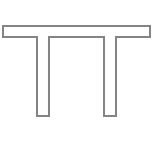Academic Overview
partnerships
Nairobi Residency, 2024. Photo courtesy Aleks Slota.
What is unique and special about us?
Since 2004 TT has been evolving a unique approach to developing and delivering graduate and doctoral programs, which focuses on the needs of mid-career creative practitioners.
Our pedagogical philosophy comprises two primary and interdependent elements:
Every one of our graduate or doctoral projects begins with the creation of a project proposal which draws upon and articulates the tacitly understood experiential learning which a practitioner has absorbed over the course of their career. We provide and facilitate a pedagogical space in which the individual research potential of that learning, and the fundamental, seldom fully-articulated questions which underpin and drive practice are articulated and honed, so as to become research questions which align naturally and organically with the concerns of the practitioner.
This deliberate and focused attention on working with ‘what’s already there’ combines perfectly with our unique low-residency pedagogical model. When the creative researcher has the opportunity to join a programme but still work remotely where she and her practice are already engaged, and can then come together in person with her peers for short intensive residencies, a ‘greater than-the-sum-of-their-parts’ effect arises, in which the benefits of both approaches are multiplied, creating a unique form of programme which our experience has shown us dovetails perfectly with the demands that busy lives place on mid-career creative practitioners.
How does this benefit creative researchers, academics and applicants?
We provide a hybrid platform for cross-pollination between researchers, and facilitate opportunities for meaningful exchanges and new collaboration (as opposed to conferences where information is disseminated and networking occurs). Shared experiences, such as our residencies and other events allow people to meet, bond and experience the benefits of working together firsthand.
We invite (and pay) partner faculty to attend residencies, give workshops and artist talks, or participate in panels and online sessions, as we believe that doing so makes partnership real to members of faculty at both partner institutions, and that this in turn creates a sense of community and shared ownership of the programme which benefits everyone involved.
We recruit applicants from all over the globe, they are predominantly well-established and mid-career successful creative practitioners, theorists, and curators who are often instinctively trans-disciplinary in their interests and outlook. They are focused, interested, interesting and a joy to work with, and we learn as much from them as they do from us. They also understand, as we do, that practice-based research holds the key to many more of the challenges that we currently face as a species than has been hitherto supposed - the work of our current doctoral candidate Andrew Freiband provides a particularly good example of this. See our other current students here.
We support our learning community with monthly, online, collaborative research training sessions, which focus specifically on the practicalities of undertaking practice-based research, along with other sessions which are intended to keep our international community abreast of cutting edge developments in practice-based research, and help them to stay connected with their peers between our multiple in-person global residencies. See our programming here.

